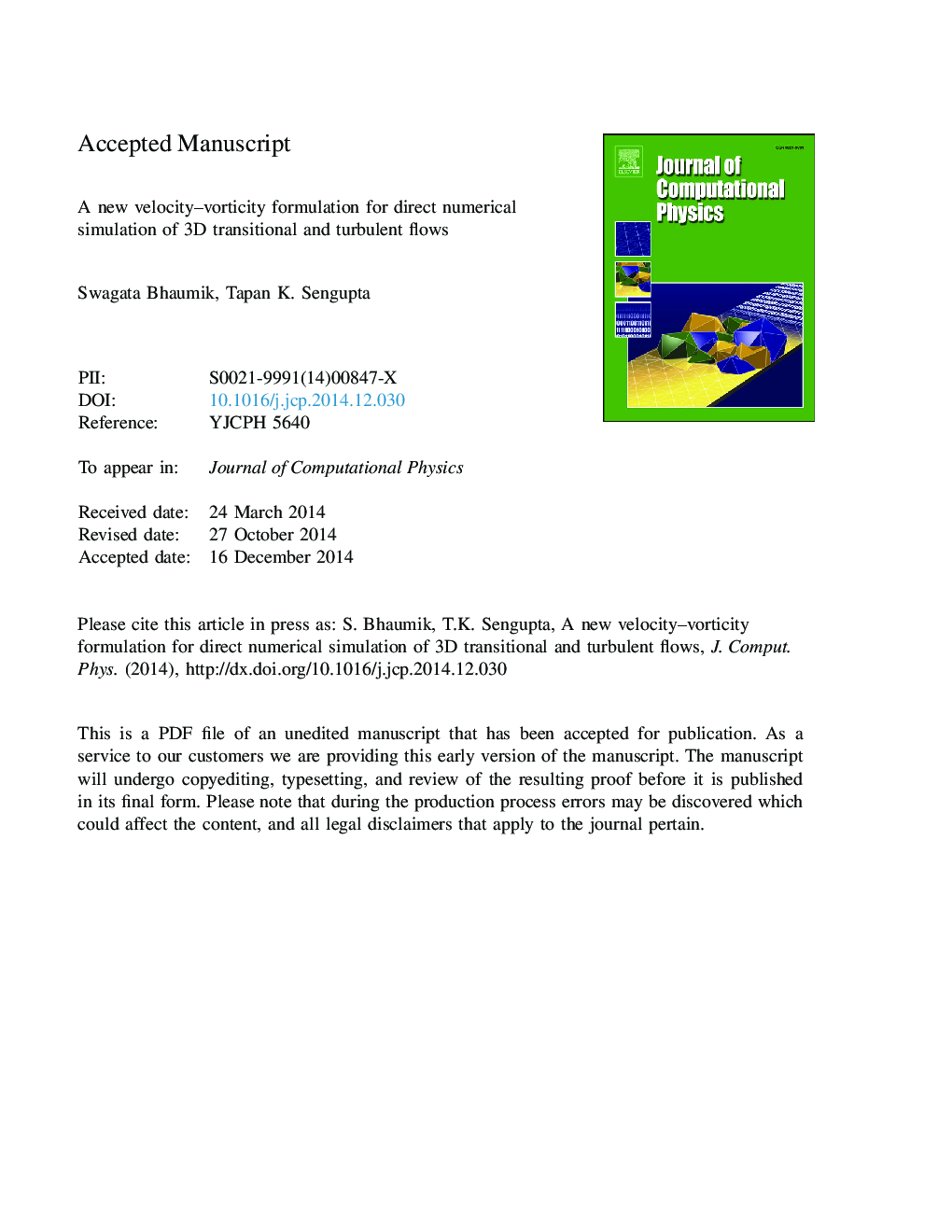| Article ID | Journal | Published Year | Pages | File Type |
|---|---|---|---|---|
| 6931703 | Journal of Computational Physics | 2015 | 78 Pages |
Abstract
Accuracy of velocity-vorticity (Vâ,Ïâ)-formulations over other formulations in solving Navier-Stokes equation has been established in recent times. However, the issue of non-satisfaction of solenoidality conditions on vorticity is not addressed in the literature which can possibly lead to non-physical solution. In this respect, here, we have developed and reported conservative rotational form of the (Vâ,Ïâ)-formulation which preserves the solenoidality condition on vorticity in a much simpler way compared to other formulations. Superiority of rotational form over the conventional Laplacian form of (Vâ,Ïâ)-formulation is also shown [by comparing the results for flows inside cubical lid driven cavity (LDC)]. For solving the 3D Navier-Stokes equation using a staggered grid, we use optimized compact schemes for (a) interpolation and (b) evaluation of first and second derivatives. As illustrations, we have solved problems of (i) flow inside a 3D lid driven cavity (LDC), whose solutions are compared with experimental results reported by Koseff and Street [19] and (ii) 3D transitional flow of an equilibrium zero pressure gradient (ZPG) boundary layer over a flat plate as demonstration of the effectiveness of the rotational form of (Vâ,Ïâ)-formulation.
Related Topics
Physical Sciences and Engineering
Computer Science
Computer Science Applications
Authors
Swagata Bhaumik, Tapan K. Sengupta,
